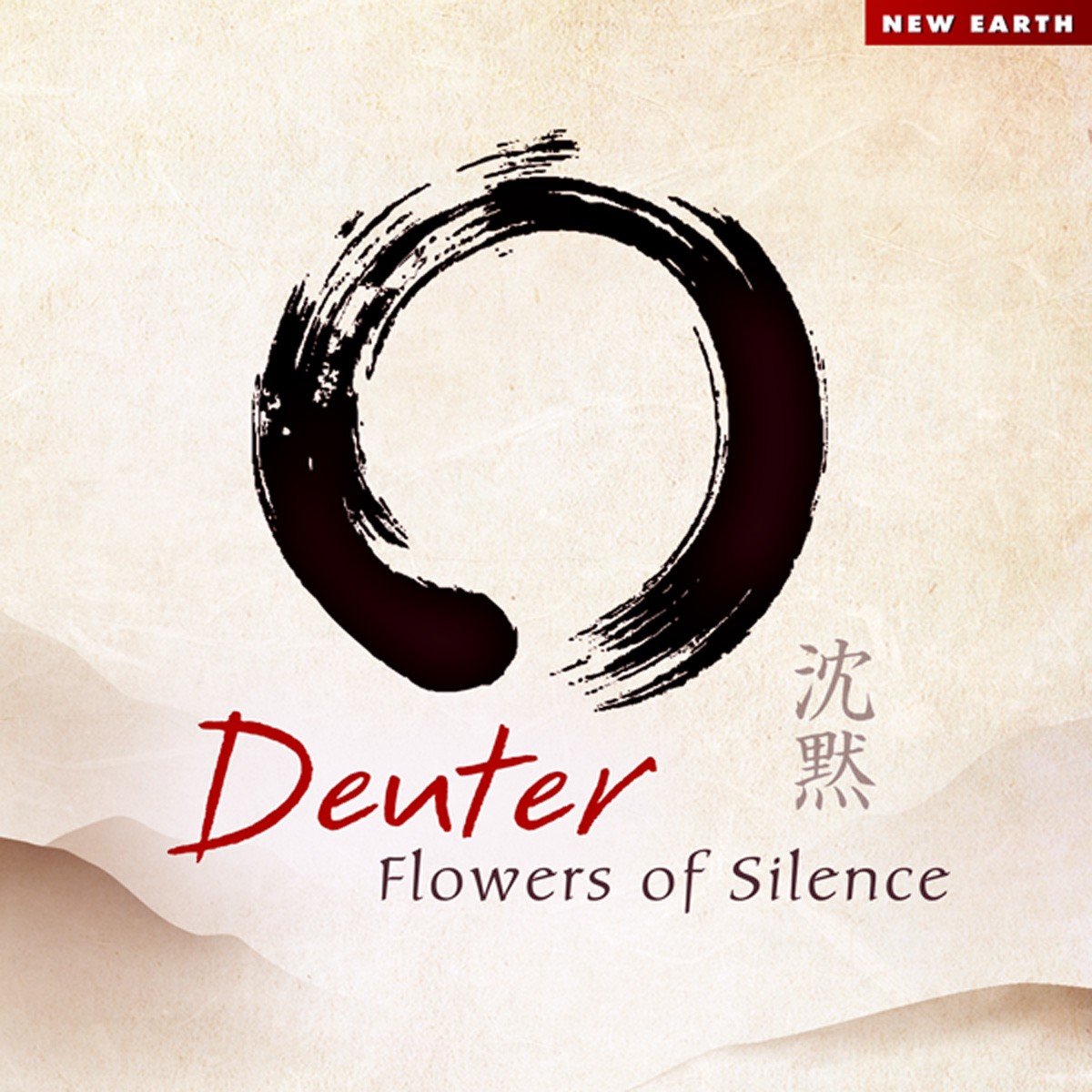Flowers of Silence by Deuter

In his latest CD Chaitanya Hari is “sharing a piece of his soul.” Review by Vandana.
Listening to this exquisite new musical offering from Chaitanya Hari Deuter, I scan my mind for suitable words and, unsurprisingly, very few arise. Playing the music while attempting to write this review, descriptive words and phrases arise, dissolve and float away; my breath deepens, eyes close … and nothing appears on my screen.
Living in Pune in the 1970’s, early days in the commune, the sounds of Chaitanya Hari’s music were to be heard everywhere, particularly in the daily meditations. Similarly to the way Gurdjieff worked with Thomas de Hartmann in the early 20th century, creating music of specific sound, frequency and vibration to accompany and support particular meditation techniques, Chaitanya Hari was designing music for every stage of Osho’s many and various meditations in close consultation with his Master. Many of us were somewhat in awe of the austere and elegant German swami, Our Master’s Muse being affectionately nicknamed ‘Beethoven’.
Reading a leading critic’s description of Deuter’s music as ‘pure new age’, I mentioned this to my young nephew, a sound engineer and musician of the mostly grunge/punk genre. Listening to a few tracks of the music he immediately asked to get ‘Flowers’ for his iPod which surprised me, then commenting that this music to him sounded ’ancient’ rather than ‘new age’ – by which he understood whale songs and Enya.
The distinction is significant, in that while ‘new age’ music may sweetly soften the emotions, calm the mind and promote a comforting environment, potentially inducing sleep and tranquility – it does not necessarily promote meditation.
Osho frequently said that many people confuse mind-tranquilisation with meditation. While this has its benefits and TM-type practitioners may experience pleasant states of mental calm and relaxation, meditation is not a state of calmed-down mind, being rather a state of no-mind.
‘Flowers of Silence’, like all Deuter’s music, opens the eye of no-mind, its sounds alchemically affecting the mind and nervous system in inducing pure empty space. Whereas most music, including the most beautiful, fills the mind, body and emotions with content – even if that content is intensely uplifting and inspirational.
Those with an existing collection of Deuter’s music – he has composed and produced close to 60 albums – will hear differences in this release in which he uses less keyboards and synthesisers, several tracks being pure unaccompanied Shakuhachi flute solos. Instruments woven into other tracks include elegant koto bells, gongs and threads of Deuter’s ever-subtle keyboards.
The 5-holed Shakuhachi flute is an instrument used for centuries by Japanese Zen practitioners and requires of its player a mind uncluttered by thoughts, total purity of focus and complete immersion in the moment. And this state may be shared quite effortlessly by any listener inclined towards meditation.
Now an acknowledged Shakuhachi master, Chaitanya Deuter writes on the CD liner notes ‘With this album I share a piece of my soul.’
While this music is unlikely to make you want to jump up and dance, it will surely stop you in your tracks. Totally divine, it is a meditator’s must-have.
Vandana is a regular contributor
More articles by the same author on Osho News
More about this musician on Osho News
Read our interview with Deuter: The Music for Osho’s Active Meditations
Meditation music and Chaitanya Hari (aka Georg Deuter) are synonymous; he has since long been recognised as the founder of New Age music and has become a legend among meditation and music lovers alike. Born in Munich, Germany, he nowadays lives in New Mexico in a sanctuary tucked away among a forest where he creates music with instruments from all over the world. Loving nature, he recently became a beekeeper; he describes himself as a hermit/monk/wolf living in the wild.
- Log in to post comments
- 35 views
